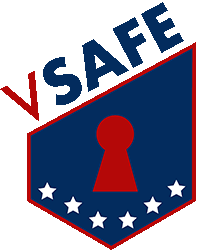Common Schemes
You should be aware of these schemes in case you see, experience, or someone asks you to participate in fraudulent activity. Indicators of potential fraud include the following:
- Charging for assistance in filing claims for government benefits or programs.
- Misreporting educational hours.
- Charging more than market value for books and supplies.
- Advertising a lower tuition rate than they are billing VA for Veteran student enrollments.
- Advertising that one instructor will be teaching a class and then assigning a different instructor.
- Offering payment to students who register but are not asked to attend classes.
- Overpromising education or guaranteeing job opportunities.
- Telling students that they only need to sign in but not attend classes.
- Offering debt relief for a fee through deceptive advertisements.
- Lying (individual or other official) on the Free Application for Federal Student Aid (FAFSA®) form or other federal student loan form to qualify for more financial aid.
- Lying (individual or other official) on any student loan application or form (Parent Loan for Undergraduate Students (PLUS) Application, Master Promissory Note (MPN), Loan Consolidation, etc.).
- Lacking written policies and procedures
Tips to Avoid Scams
Do’s
- Apply directly to VA for GI Bill and related education benefits. Veterans may submit applications for VA education benefits securely online, by mail, or in person at any regional office. Veterans may file claims directly with VA, and VA will help gather the necessary evidence. There are no costs or hidden fees to apply.
- Research colleges and employers approved for the GI Bill by using the GI Bill Comparison Tool to confirm that the school is approved. Use extra caution and ask multiple sources, including the U.S. Department of Education’s College Scorecard, when considering a for-profit school.
- Work with a Veterans representative at prospective colleges or universities for the student enrollment process and experience.
- Only trust reliable sources such as, StudentAid.gov or Consumerfinance.gov when researching information about student loans. Non-government websites may provide misleading, inaccurate, or out-of-date information.
- Be vigilant if anyone requests payment for services. Loan applications, forgiveness, and other programs can be accessed for free through the U.S. Department of Education. If you are required to pay to access education related services, it is probably a scam.
- Call VA if a school asks you to register and says you are not required to attend classes or if the instruction you receive is not what was promised or advertised.
- Create a Federal Student Aid (FSA) ID to access your Federal Student Aid loan information. Having an FSA ID can allow you to easily access accurate information on your loan and make sure FSA can contact you directly, helping you equip yourself against scammers trying to contact you.
- Keep your contact information up to date. It is important that the U.S. Department of Education and your loan servicer have your most current contact information, such as your home address, email, and phone number. If you don’t know who your servicer is, you can log into your Federal Student Aid account to see your servicer(s) in your account and to keep your contact information up to date.
Don’ts
- Do not pay anyone to help you apply for loan forgiveness, cancellation, or debt relief. Make sure you work only with the U.S. Department of Education, the Office of Federal Student Aid, or their loan servicers.
- Do not share your personal information. This includes, VA account information, Social Security number, FSA ID login information, or any other government benefits. If scammers get your information, they can cut off contact between you and your servicer or even steal your identity.
- Do not sign a blank form for someone else to complete later. Always review the completed form before signing and keep a copy of the completed form for recordkeeping purposes.
- Do not ever give personal or financial information to an unfamiliar caller, even if they state that they are affiliated with the U.S. Department of Education. Scammers use official-looking names, seals, and logos. They promise special access to repayment plans. When in doubt, hang up and call your student loan servicer directly. You can find your Federal student loan servicer’s contact information online.
- Do not refinance your federal student loans without knowing the risks. If you refinance federal student loans that are eligible for debt relief into a private loan, you will lose out on important benefits like debt relief, forgiveness, and flexible repayment plans for federal loans.





